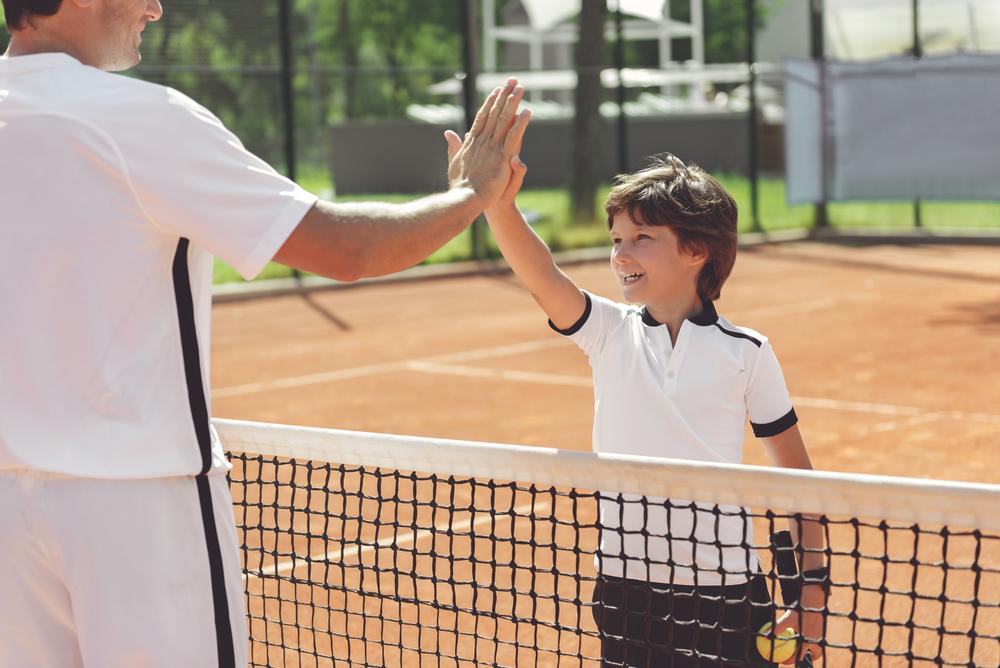 Running sprints for being late to practice. A “no-excuses allowed” policy. Giving equal amounts of critique to every player on the team.
Running sprints for being late to practice. A “no-excuses allowed” policy. Giving equal amounts of critique to every player on the team.
In terms of sports, being accountable is often thought of in punitive contexts like these.
But accountability can be taught in ways that don’t involve scaring or softly threatening kids into doing what they’re told. Instead, it’s something that can be taught in a much more positive and empowering light, especially when coaches and parents do the following.
Praise Publicly and Positively
Being heavy-handed with praise is an important virtue for any youth sports coach to have. While it’s not in everyone to be Mr. or Mrs. Optimism all the time, it feels good for youth athletes (and anyone) to be praised for something done well, especially when it comes from a coach or parent.
But praise coming from teammates is also valuable in creating an accountable team. Designating captains respected by the rest of the group whose praise and opinion is valued, and who stay positive even in tough situations can organically create a team in which each member is accountable to one another.
Be Clear With Expectations and Consequences Rewards
Especially at the high school and collegiate levels, many coaches have a clearly defined punishment system. While assigning X punishment for being late to practice or skipping class might be effective at those ages, younger athletes might respond better to a more positive set of expectations.
Instead of it being failure-punishment-based, spin it into an action-reward-based system, e.g., “If everyone does X (e.g., show up to practice on time, complete a team relay drill under a target goal time), the team receives X award.” The reward could be less running at practice or letting the team choose the next drill or scrimmage style.
With minimal coach involvement, this setup builds a great deal of trust and accountability (not to mention teamwork) amongst a team working toward a common goal.
Stay Accountable to the Process, Not the Result
Getting youth athletes to treat practice with the same intensity of focus they would a game can be difficult—and to be fair, the games are largely what we remember most about playing sports and why most sign up in the first place. However, what leads to actually winning in those games and makes athletes better overall is of course focusing on the drills, scrimmages, and workouts as if they were important as any game. This can be a difficult point to get across to many youth athletes.
This message can be subvertly communicated by taking an approach that places more importance on how much effort is put into practices and games as opposed to the wins and loss columns. Praise effort and teamwork over anything quickly quantifiable, regardless of the game’s final score.
Keep Learning and Modeling Positive Behavior
Just as a coach needs his players to be accountable to each other by always trying to improve, the team needs the coach to be accountable back by always trying to improve at his or her trade.
Even if they have 25+ years experience under their belt, a coach needs to stay accountable to their team by adapting to the individual personalities and dynamics within it, as well as to stay knowledgeable on rule changes, developments in the way the sport is played, and even with changing societal expectations. This can be done by attending clinics, reading newer coaching books, or simply listening to the athletes and considering what they want most out of sports.
And of course, coaches should always hold themselves accountable to the same team rules they do their athletes, too.
Practice Patience
With any of the above suggestions, the underlying theme is to be patient.
Being accountable not only to oneself, but to an entire team, especially when it comes to admitting mistakes, is something most youth athletes must learn. For some, this can take years and only after many, many mistakes. But as tempting as it might be to try teaching a lesson ‘the hard way,’ for some athletes (especially younger ones) that approach can be counterproductive.
In the instant-gratification age, it can be tough for youth athletes to stick with anything they don’t excel at right away. Combat this by not only encouraging, but also by embracing mistakes, treating them as positives that allow new skills to be taught so they are less likely to occur again.
Of the many great values youth sports can teach, only with patience can athletes learn to trust and stay accountable to their coach, the process in practices and training, their teammates, and of course themselves.



